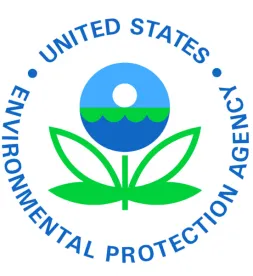Environmental Protection Agency (EPA) has issued a new rule that will impact the operations of a wide-range of health care facilities and the manner in which those facilities manage hazardous waste pharmaceuticals. The “Management Standards for Hazardous Waste Pharmaceuticals and Amendment to the P075 Listing for Nicotine” applies to health care facilities that distribute, sell, or dispense pharmaceuticals, including hospitals, ambulatory surgical centers, physicians’ offices, optical and dental providers, chiropractors, long-term care facilities (excluding assisted living facilities), and pharmacies.
Prior to the issuance of this rule, the existing regulatory structure failed to account for differences between health care facilities and manufacturing facilities in the generation and management of hazardous waste pharmaceuticals, making it difficult for health care facilities to comply with the applicable regulations. EPA has issued this final rule, in part, to address these difficulties and to streamline the hazardous waste management obligations imposed on health care facilities.
One of the more impactful provisions of the new rule prohibits health care facilities from disposing of hazardous waste pharmaceuticals down the toilet or drain. Also known as “sewering,” this commonly used method of disposal will be banned nationwide effective August 21, 2019. In addition to the ban on sewering, the new rule regulates hazardous waste pharmaceuticals in the reverse distribution process as hazardous wastes while still at the health care facility, triggering regulatory obligations that were previously shifted to reverse distributors thus, largely inapplicable to health care facilities. However, the new rule does not consider over-the-counter and non-prescription drugs processed by reverse logistics providers to be hazardous waste, unless the product is discarded by the health care facility. Health care facilities will also be required to implement and document training programs for employees who handle pharmaceutical waste, comply with accumulation standards and labeling requirements, submit reports, and maintain records related to the management of hazardous waste pharmaceuticals.
Additionally, the new rule contains a conditional exemption to EPA’s disposal standards for hazardous waste pharmaceuticals that are also Drug Enforcement Administration (DEA) regulated controlled substances. To qualify for the exemption, a health care facility must: (i) manage the DEA controlled substance in accordance with DEA regulations; (ii) ensure the product is incinerated or destroyed by a DEA approved method; and (iii) not sewer the controlled substance. Further, health care providers that operate a DEA “take back program” collection receptacle are expressly prohibited from depositing any hazardous waste pharmaceuticals into the receptacles except for household wastes deposited by ultimate users.
While some provisions of the new rule will go into effect on August 21, 2019 (including the ban on sewering), many of the requirements will not become effective until states adopt the new rule or implement regulations that are at least as stringent as those contained in the new rule. Most states will have until July 1, 2021 to adopt the new rule or implement their own regulations.
More information on the final rule can be obtained here. In light of the new regulatory framework and significant monetary penalties for violations, health care facilities should consult with legal counsel to better understand the applicable obligations. Please contact a member of Dinsmore’s health care group for assistance in complying with EPA’s new rule.





 />i
/>i


